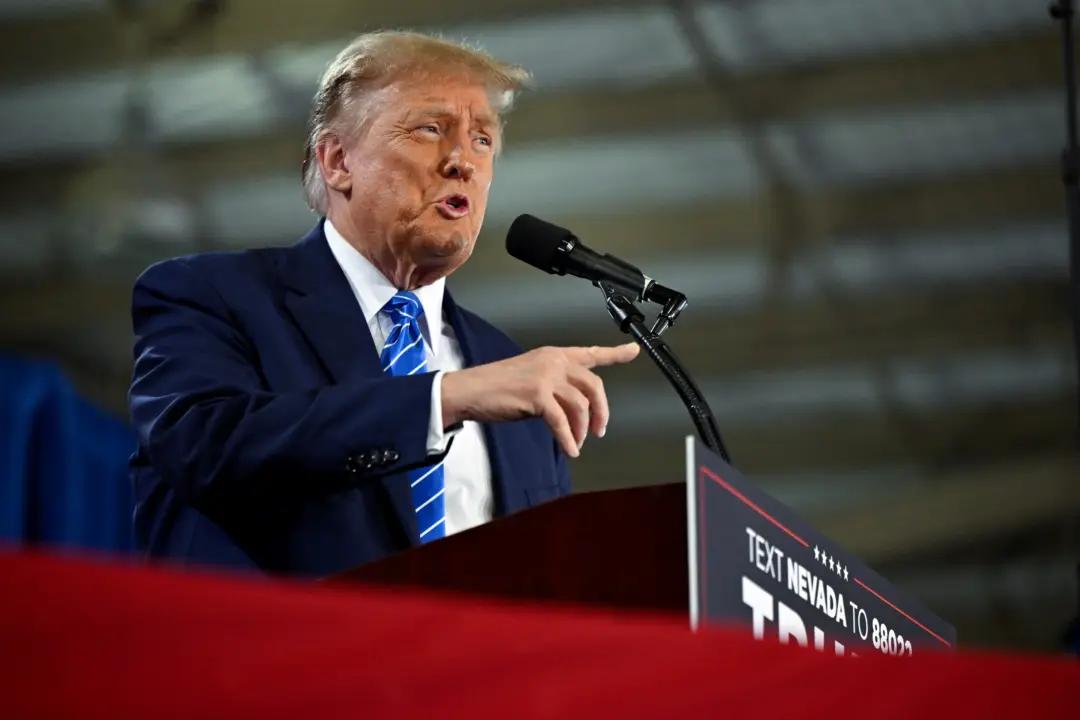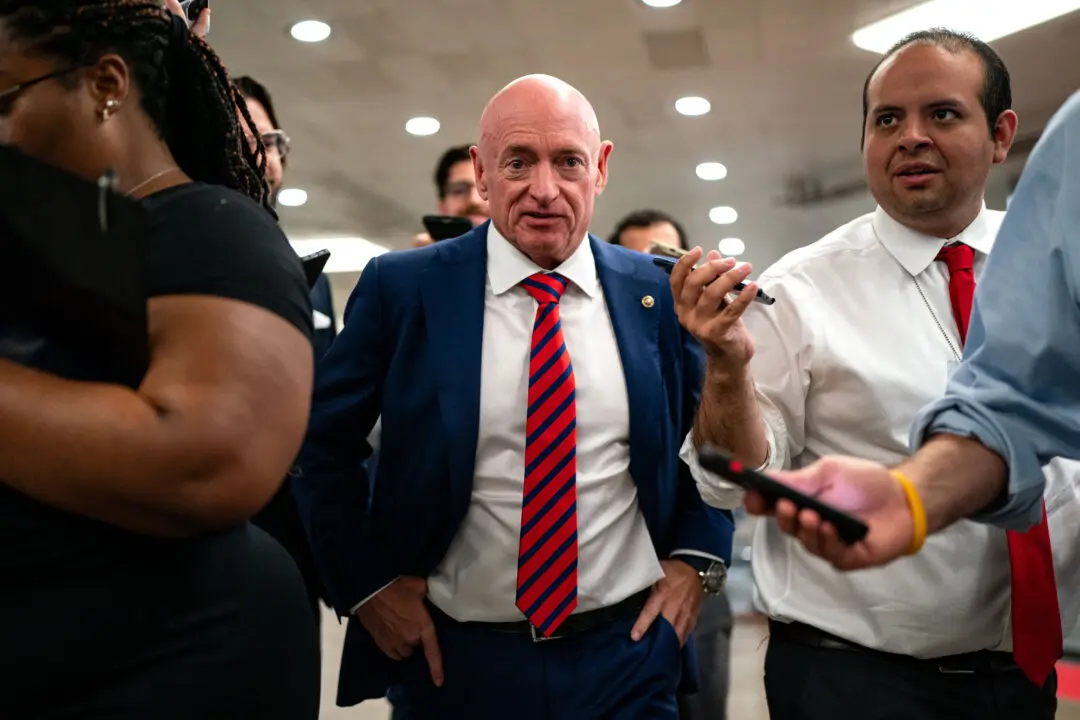Former President Donald Trump is endorsing an effort to implement voter ID requirements in Nevada elections and has called on voters turning out for the Nevada Republican presidential caucus on Thursday night to also take the opportunity to sign a petition that will place the voter ID issue on the state’s ballot in the 2024 election.
“A very important effort is now underway in Nevada to amend the State Constitution to require VOTER ID. But this can only happen if enough Citizens of Nevada sign the Petition to put the proposed VOTER ID Amendment on the Ballot for the November 5, 2024 Election,” President Trump wrote in a post on his Truth Social account on Thursday afternoon.





